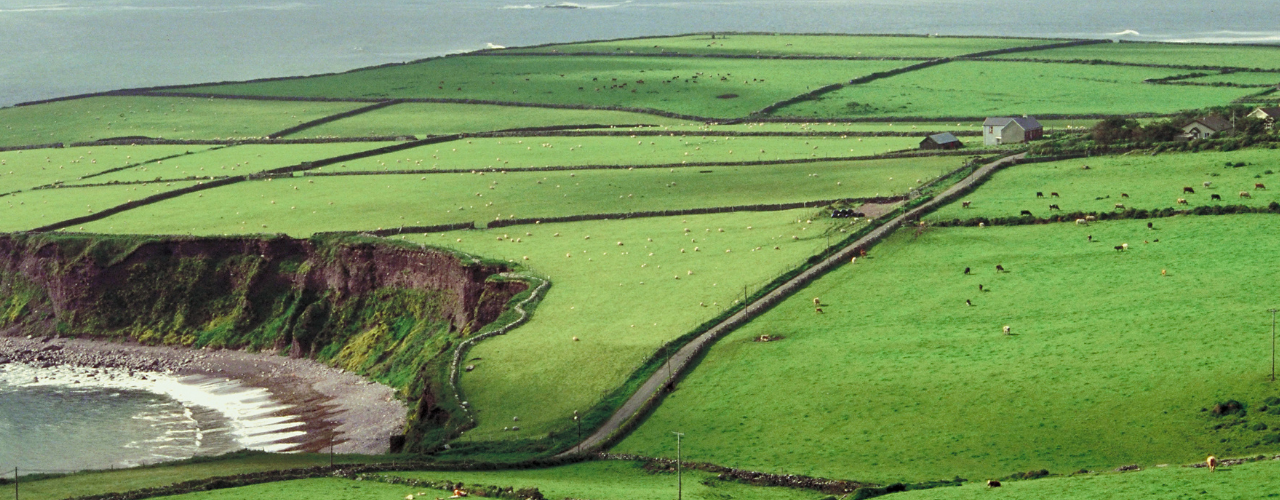
It is possible for dual realities to exist as the same time. Light is both a particle and a wave, cake can be both bad for your health and good for your happiness, and the amended Climate Bill published this week can be perceived to be both good and bad.
The most ambitious Irish commitment to emissions reduction to date, simultaneously falls short in committing us to doing our fair share in dealing with the climate crisis.
Eamon Ryan, while announcing this Bill, proclaimed that this is the most ambitious legislation in the world. The Bill sets out that Ireland will achieve a 51% reduction in emissions by 2030, set to bring us in line with EU policy to be net-zero by 2050. There are two points of interest around this ambition which weaken it as an effective tool in the fight against climate change.
Firstly, as a wealthy, high emitting nation this level of emission reductions does not come near what out ‘fair share’ of reductions needs to be. Our fair share is determined by our historical and current contribution to climate change and our ability to reduce our emissions. It is a moral responsibility that we address the crisis on these historical grounds. When we commit to reducing our emissions by less than our fair share, we are ignoring climate justice and forcing those who are weaker, poorer, and less responsible to carry our load.
Secondly, while this Bill does set out ambitious interim targets of a 51% reduction in emissions by 2030, the legal requirement for the Government to deliver these reductions is weak. These interim targets are particularly important to cut out emissions deeply and early, and not fall into the trap of relying on future climate action which may be too late. Having cast-iron legal commitments from the Government removes the risk of less ambitious governments coming into office and making use of the wiggle room that this Bill seems to allow for.
A drastic reduction in emissions is necessary to bring us in line with global ambition as we are starting from such a poor position. For all the rhetoric, Ireland is a climate laggard. Our per-capita emissions are one of the highest in Europe and we have consistently failed to take any effective climate actions. We need to be ambitious now due to our utter lack of ambition in the past. This is akin to making the monthly minimum payment on a maxed out credit card, trying to ignore the interest we are running up. Except that the ‘interest’ is also borne by those in the Sahel or the Amazon.
Where is the Justice?
While the increased ambition in emissions reduction can be acknowledged in this Bill, there is an alarming lack of ambition and clarity when it comes to climate and social justice.
The definition of climate justice in the Bill is weak. In legislative Bills the words and definitions that are chosen are vital to the functioning of the Bill as a whole. It underscores the intent and ambition of the legislation and defines what policies are developed and how they are implemented. “Framing climate breakdown as a justice issue is vitally important to ensuring that responsibility for it is fairly allocated and those most vulnerable to climate impacts and climate action are not disproportionately affected.” You do not need to be a political expert or legal professional to predict the consequences of loose definitions of justice in the law: the outcome is almost bound to be injustice that will serve those who have power and affect those on the margins.
Translation of legislation to policy
As well as failing to adequately address Climate Justice, the Bill fails to safeguard a Just Transition into a low carbon economy. We cannot emphasise how damaging this is. In the long-run, an unjust transition will not just hamper climate mitigation. It will pose an existential threat to democracy because as the poorest are made to pay the costs that have primarily been run up by the rich, the clarion call of extremism will sound ever more attractive. Let us be clear: without a just transition, the entire mainstream political movement will be discredited in the coming decades.
Why are we so pessimistic about this? Because as is true for everything, this Bill does not exist in a vacuum. Our lethargic response to the environmental crisis is paired with intensifying inequality and economic injustice in our society. Our poor ecological performance sits alongside, among other things, a housing and homelessness crisis. Achieving a 7% decrease in emissions per year until 2030 will require changes in every aspect of our society including housing, transport and, possibly the end of some indigenous industries.
Minister Eamon Ryan has stated that public health and housing strategy is inextricable from climate action, calling it a “major capital investment”. The Minister called retrofitting of housing stock as a “significant private investment” and pledged that savings on household energy will help to pay for the Bill. Minister Ryan linked a better BER rating to higher housing prices, which is in conflict with what the JCFJ has advocated for – the decoupling of the housing market from wealth creation.
While the Bill is vitally important, it is laying down the rules on which climate action and climate policy will be based.
How these rules are interpreted and implemented, and how well they integrate with other societal and environmental issues is where the results will be visible.
We need strong protections, mandated within this Bill, for the most vulnerable in our society to ensure that climate action does not lead to further social exclusion and marginalisation.
The positives within this policy should be an encouragement to activists to keep going – they are now seeing the tangible outcomes from their efforts. It’s weaker aspects should also function as motivation to push on – there is so much more to be secured.

